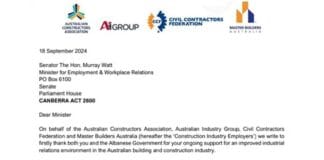NEW FIGURES showing a dramatic drop in union membership in 2007 highlight the challenges facing the labour movement as it attempts to rebuild after the Howard years.
ABS data shows that total membership fell by 5 per cent, or 89,000, in the year to August 2007. Union coverage of the workforce is now less than 20 per cent, and just 13.7 per cent in the private sector. The latest fall continues a long trend of decline. The drop is a blow to hopes that the unions’ campaign against WorkChoices would lead to a rise in membership. It demonstrates that although the unions’ political campaign was very successful, it has not yet translated into more recruits on the shop floor.
ACTU president Sharan Burrow blamed the drop on the Howard government’s WorkChoices laws, which have made it much harder for unions to organise and recruit.
A major factor behind union decline is undoubtedly structural changes to the economy-permanent, unionised jobs in the “old” economy such as manufacturing are being replaced by service sector jobs which are often casual and temporary, and where traditions of unionism are weaker.
But some unions have defied the trend and their successes are an example of how to reverse the decline. The Electrical Trades Union in Victoria, for instance, has doubled its membership in the last decade, by taking a militant stance and winning better pay and conditions for electricians.
The Australian Education Union grew by 20,000 members in the last year alone, mainly on the back of a strong industrial campaign in Victoria. The lesson is that unions can reverse the decline if they involve their members and engage in action over pay, conditions and wider political issues.
By Jarvis Ryan





